Quotes & Sayings About The Dreaming Aboriginal
Enjoy reading and share 5 famous quotes about The Dreaming Aboriginal with everyone.
Top The Dreaming Aboriginal Quotes
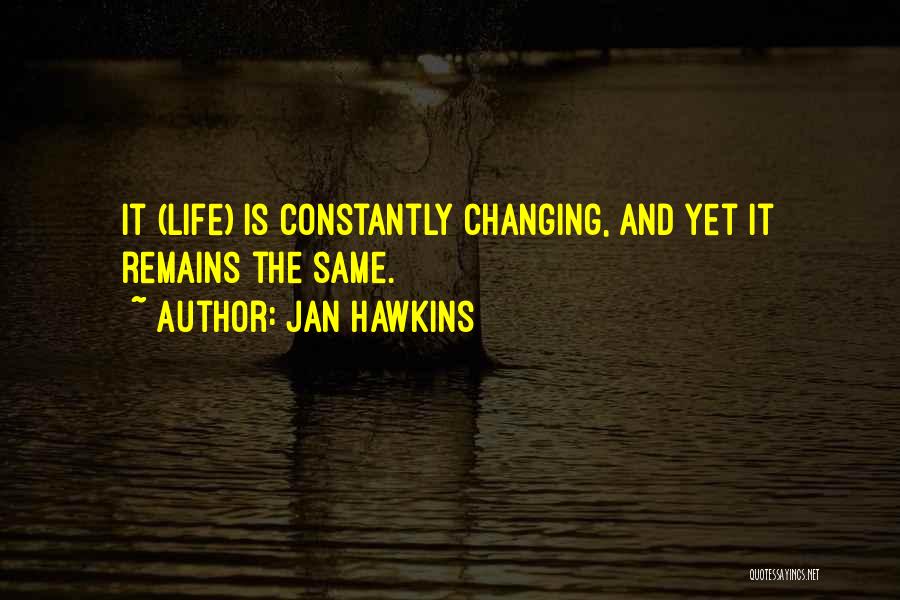
It (Life) is constantly changing, and yet it remains the same. — Jan Hawkins
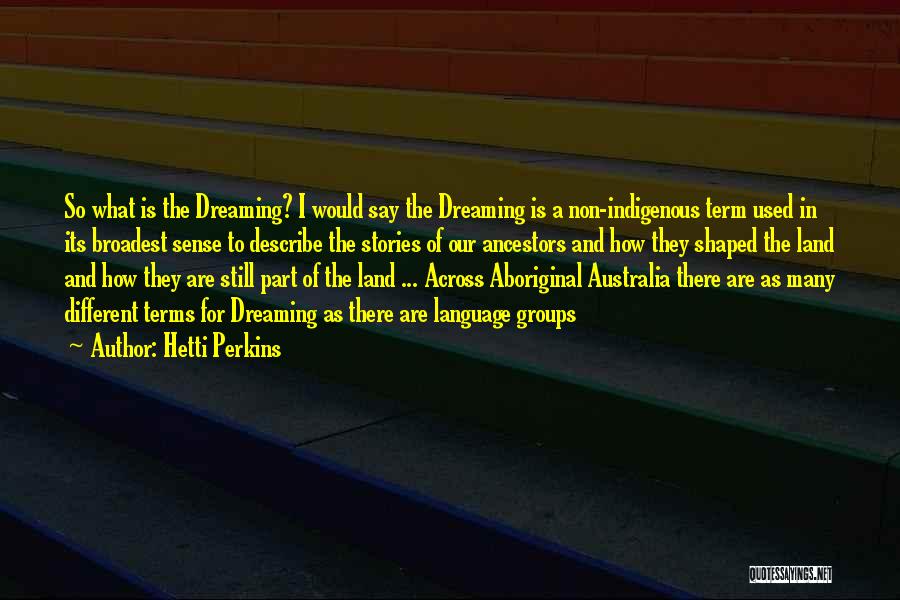
So what is the Dreaming? I would say the Dreaming is a non-indigenous term used in its broadest sense to describe the stories of our ancestors and how they shaped the land and how they are still part of the land ... Across Aboriginal Australia there are as many different terms for Dreaming as there are language groups — Hetti Perkins
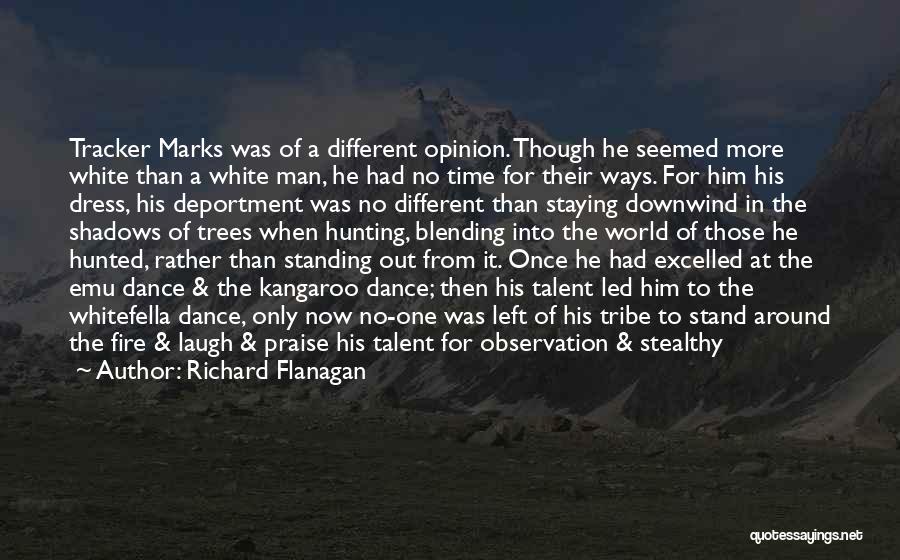
Tracker Marks was of a different opinion. Though he seemed more white than a white man, he had no time for their ways. For him his dress, his deportment was no different than staying downwind in the shadows of trees when hunting, blending into the world of those he hunted, rather than standing out from it. Once he had excelled at the emu dance & the kangaroo dance; then his talent led him to the whitefella dance, only now no-one was left of his tribe to stand around the fire & laugh & praise his talent for observation & stealthy imitation.
The whites have no law, he told Capois Death, no dreaming. Their way of life made no sense whatsoever. Still, he did not hate them or despise them. They were stupid beyond belief, but they had a power, & somehow their stupidity & their power were, in Tracker Marks's mind, inextricably connected. But how? he asked Capois Death. How can power & ignorance sleep together? Questions to which Capois Death had no answer. — Richard Flanagan
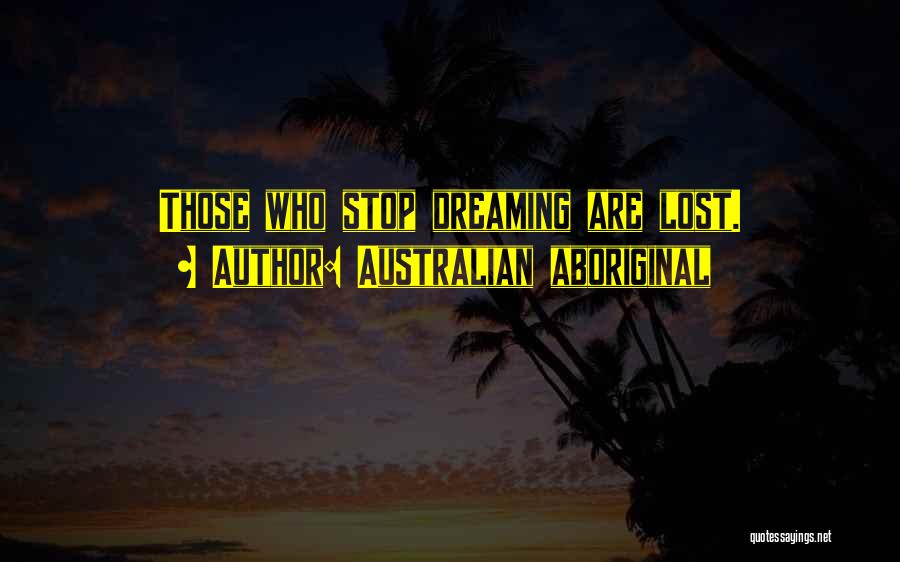
Those who stop dreaming are lost. — Australian Aboriginal
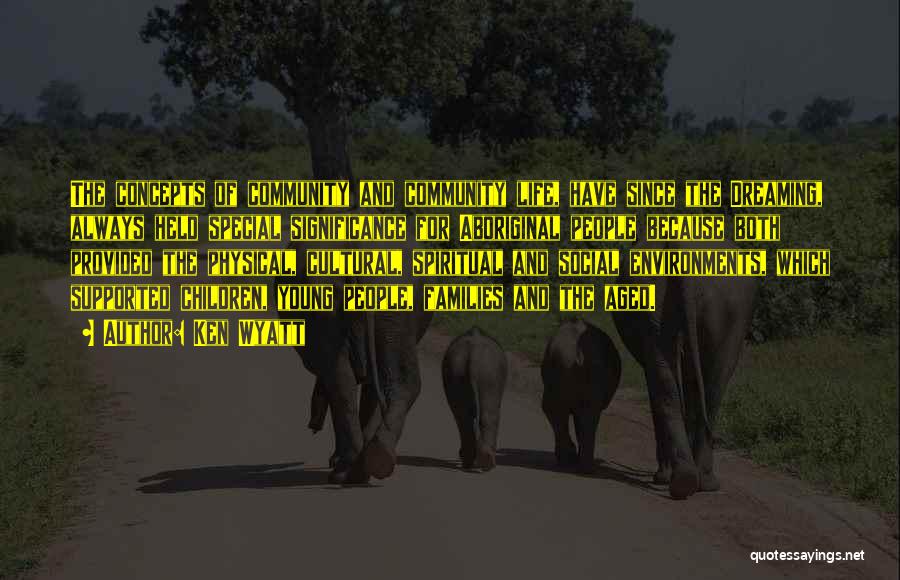
The concepts of community and community life, have since the Dreaming, always held special significance for Aboriginal people because both provided the physical, cultural, spiritual and social environments, which supported children, young people, families and the aged. — Ken Wyatt





